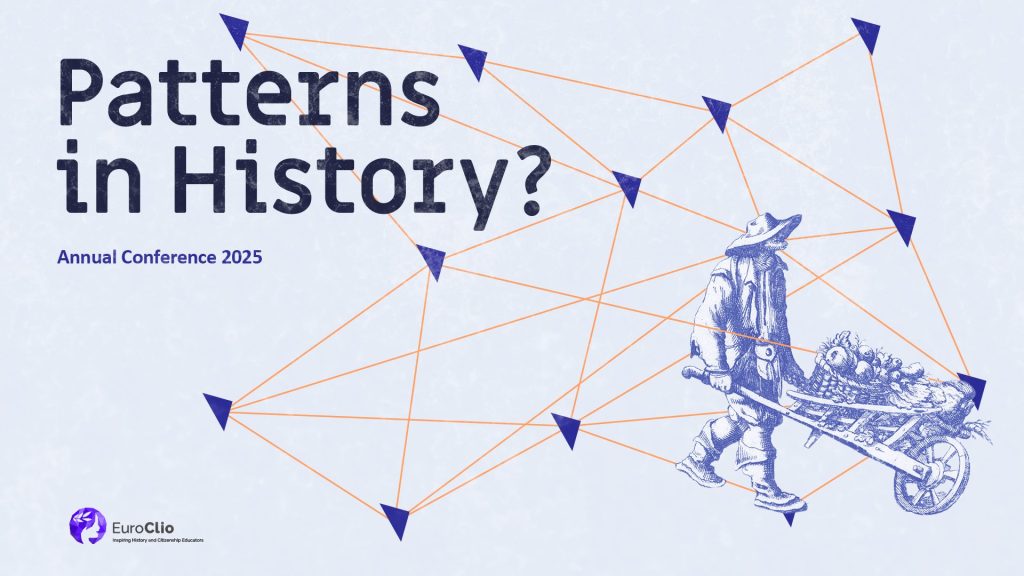‘The problem now is not finding information-the problem is what to believe.’
Professor Sam Wineberg, keynote speaker at the Annual EuroClio Conference for history teachers which was held in Bratislava, Slovakia recently stated that ‘the problem now is not finding information-the problem is what to believe.’’
Wineberg, founder of the Stanford History Education Group (SHEG’s) spoke about its research into the practices that professional fact-checkers use to evaluate the credibility of material on the internet, including lateral reading (opening new browser tabs to help corroborate or refute the initial claim) and click restraint (scanning search engine results thoughtfully, as opposed to what he calls “promiscuous” clicking).
Truth dies in different ways, open hostility to verifiable reality presenting inventions and lies as facts, the second way is constant repetition of lies which transforms individuals into stereotypes that people then speak aloud, the third way is the abandonment of reason to feelings alone and misplaced unquestioning faith.
An avalanche of unvetted information, contentious periods of history or competing narratives in the classroom, new and evolving teaching methods set the tone and the challenge for history educators who gathered from across Europe and beyond to share their experience and bring back new ideas, skills and ‘know how’ to their students and classrooms.
Educators from Spain, France, Serbia, Albania, Iceland, Sweden, Norway, Denmark, United States, UK, Ireland, Slovakia, Basque Country, Romania, Lithuania, Nederland’s, Bulgaria, Belgium, Poland, Chile, and others exchanged international best practice in history education. For many, it was their first time attending while others had a long association with EuroClio and were happy to mentor, advise and pass on their experience and wisdom.
Founded in 1992, EuroClio continues to focus on improving the quality of history teaching, through teacher training, the development of educational resources and the fostering of international dialogue to support cross-border understanding and cooperation. For three days, EuroClio hosted over thirty-three workshops, school visits, a visit to a memorial site and synagogue and a range of interesting cultural visits and experiences in Bratislava, a city, blessed with sunshine for three days of intensive learning.
Urszula Bijoś Project Manager of Hi-Story Lessons at ENRS ran a very successful workshop called ‘How to Spot Fake News’ where 25 participants interactively engaged in activities and spirited discussion on discerning the truth of online historical information.
The timeline produced during the workshop is available here.
Barbara Walshe (Expertise Support, Projects Department) ran a workshop called ‘Building Bridges-A Restorative Dialogue approach.” The methodology, based on a fundamental human need to be heard and understood, rather than being right or wrong, builds relationships and community and addresses harm when required. Evaluation suggested that it could be helpful for teachers themselves.
The key reflections from the conference are included:
• Massive disruption is not new: The invention of the printing press in the 15th century caused a massive disruption to the social, economic, and religious norms in society. It also led to increased literacy as well as the spread of information and misinformation.
• The challenges posed by AI and ChatGPT have also caused disruption and uncertainty as to how it will influence humanity and historical education in the future, upskilling is needed to understand it better.
• How to equip students with the skills to identify reliable information sources to combat ‘fake news.’
• We appreciated the opportunity to test specific topics using a range of innovative methodologies used by educators in different countries.
• Managing competing historical narratives and different stories of ‘what happened’ continues to be a struggle for teachers, caught between evidence-based history and narratives absorbed within the home and on the street.
• Learning about Parallel Histories - an organization dedicated to ‘not avoiding’ contentious subjects but helping each side to ‘walk in the shoes of the other.’
• It was a wonderful opportunity to explore Bratislava and experience a little of its culture.
